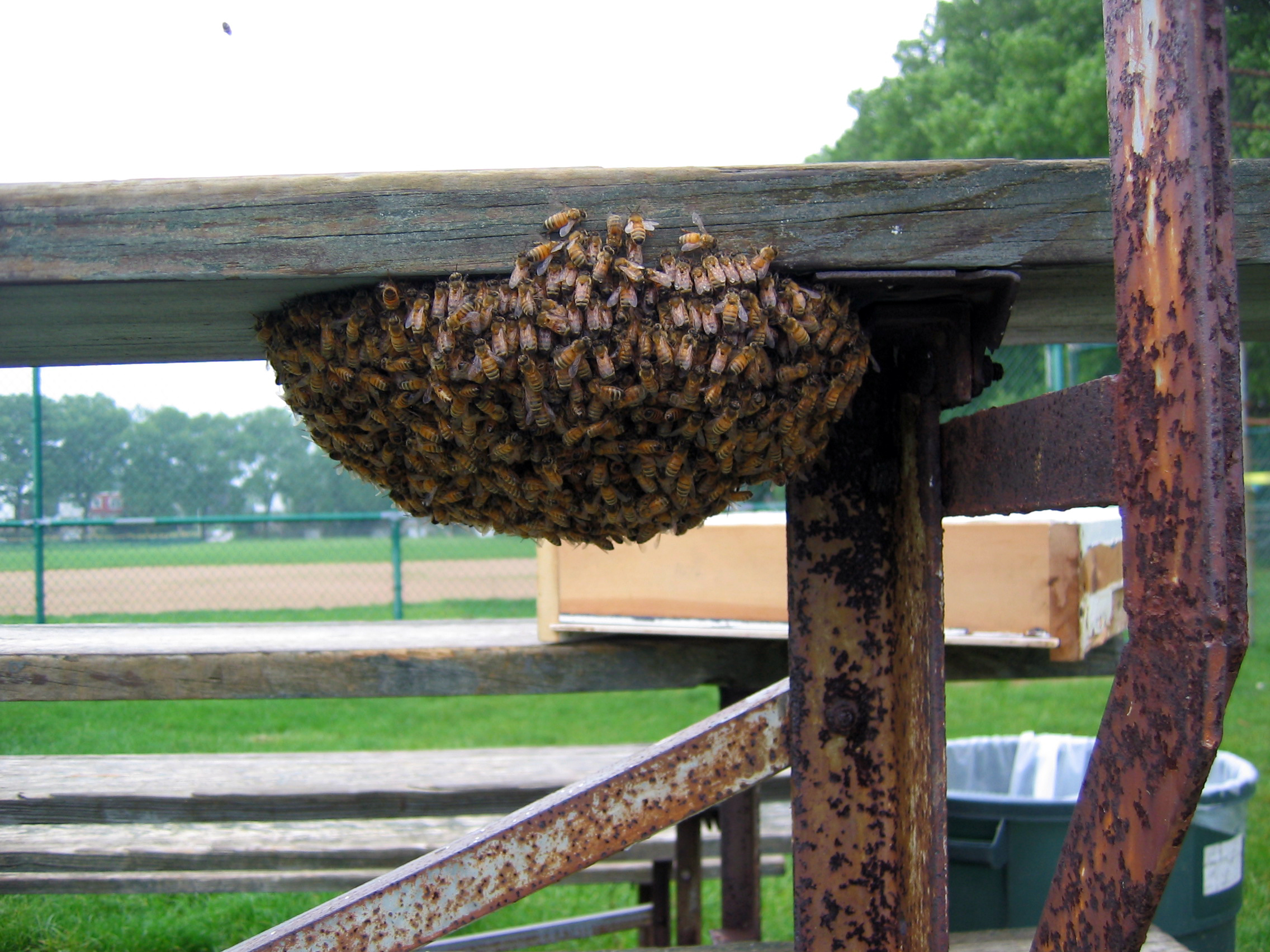 An example of a honey bee swarm | Photo courtesy of Adam SchreiberFinding a flash mob of 25,000 honey bees in your yard or on the side of your home might alarming, but local beekeepers are asking you to resist calling an exterminator to eliminate these valuable pollinators. Instead, call your local beekeeper. You’ll be doing your whole community a valuable service, and it won’t cost you anything.
An example of a honey bee swarm | Photo courtesy of Adam SchreiberFinding a flash mob of 25,000 honey bees in your yard or on the side of your home might alarming, but local beekeepers are asking you to resist calling an exterminator to eliminate these valuable pollinators. Instead, call your local beekeeper. You’ll be doing your whole community a valuable service, and it won’t cost you anything.
Spring is swarming season, when honey bee populations spike, and some bees leave their hives to form new colonies. After leaving their original hive, the bees will cluster temporarily on a nearby branch or protected area while scout bees go in search of a new, permanent home. The cluster may stay in the temporary location for a few hours, or a few days. It is important to note that during this time the bees are very docile. They will avoid human contact, and will not sting or become aggressive unless unduly provoked. This is the time to act fast and contact your local beekeeper.
Beekeepers can carefully remove virtually the entire migrant colony, often in less than an hour. The captured bees can then be added to the beekeeper’s apiary where they will be safely housed, and become valuable assets. Instead of being killed, the bees will aid in honey production and pollination. It’s a win-win for the community, the beekeepers, and the honey bees.
Saving honey bees from extermination is especially beneficial in recent years as populations have been declining due to parasites, viruses and indiscriminate pesticide use. It is important to do everything we can to promote the welfare of this valuable pollinating insect. For a list of beekeepers that will capture swarms in your area, visit the Philadelphia Beekeepers Guild website phillybeekeepers.org/
Barbara Patrizzi is the secretary for the Philadelphia Beekeepers Guild. You can reach her at secretary@phillybeekeepers.org.






